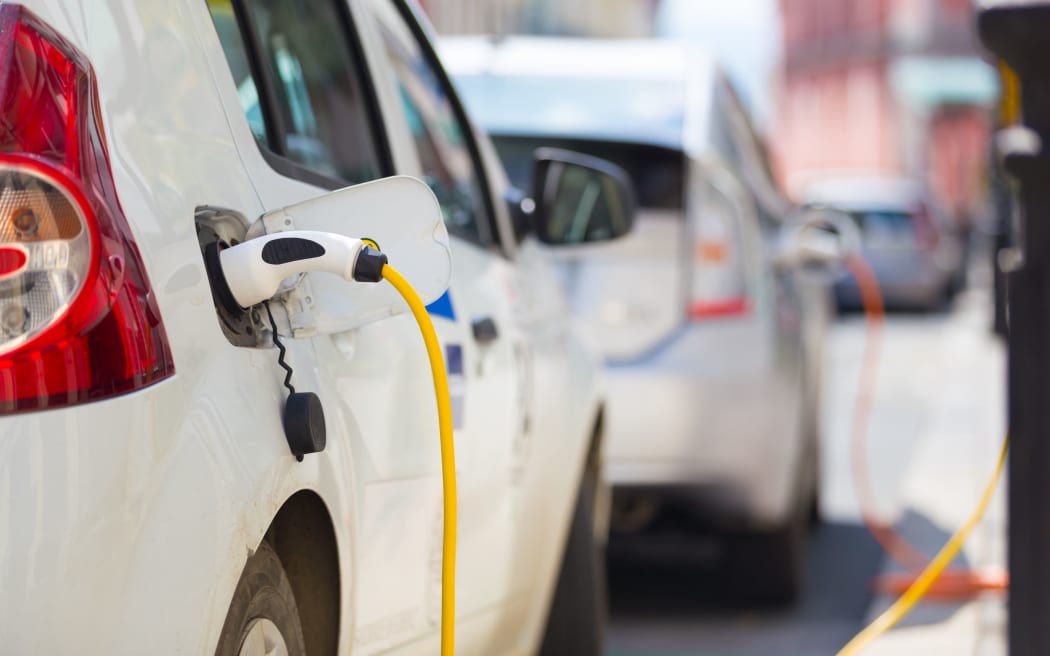
The Clean Car Discount scheme was announced by the previous government in June 2021. Photo: 123RF
The Clean Car Discount scheme wraps up today, taking financial incentives for low-emissions vehicles and the so-called "ute-tax" with it.
The scheme was announced in June 2021, creating fees for the buyers of newly imported combustion engine vehicles, with that money going towards rebates for electric cars or plug-in hybrids.
It was designed to be financially neutral, but when demand for low-emission vehicles outstripped the fees collected, the Labour government rejigged the scheme in May.
Those changes increased fees for higher emitting vehicles - something ute drivers like farmers and tradies were particularly concerned about - and lowered the emissions threshold for eligible vehicles.
National promised it would scrap the rebate and higher fees for high-emissions vehicles in the first 100 days of government if it got into power, and now, it is axing the scheme as of the new year.
The Green Party disagrees with cutting the scheme, saying it was foolish to be getting rid of something this effective.
The party's transport spokesperson, Julie Anne Genter, said it had been hugely popular, and increased the range of low-emissions vehicles being brought into the country.
"It created a step-change in the number of low-emissions vehicles and EVs in particular that were coming into New Zealand."
Genter said New Zealand should be striving to be an international frontrunner in the uptake of low emissions vehicles, and scrapping the scheme would put us behind.
"I think that momentum will slow down, but it won't go back to what it was before we had the policy, so that's a win."
RNZ previously reported car dealerships were slashing their prices in the wake of the announcement of the scheme's demise, but there was no stampede to get in before it ended.
Genter said while it was possible the scheme could re-emerge at a later date, the time to make change was now, with transport as the biggest source of emissions in New Zealand.
"In a few years' time, we won't need a policy like this, because automobile manufacturers are phasing out fossil fuel vehicles as a result of so many countries in the world having policies sending them in that direction."
Automobile Association spokesperson Dylan Thompson said it could be months before we saw the effects of the scheme's cancellation on the car market.
"It was designed to stimulate the market, get people to go out there and incentivise them to purchase electric vehicles or cleaner vehicles, and it's been really successful."
He said it had rapidly increased the number of low-emissions vehicles on our roads, normalised them for buyers, and attracted more manufacturers to the New Zealand market.
Only time would tell if the lack of incentive in the form of rebates would be enough to slow the market.






